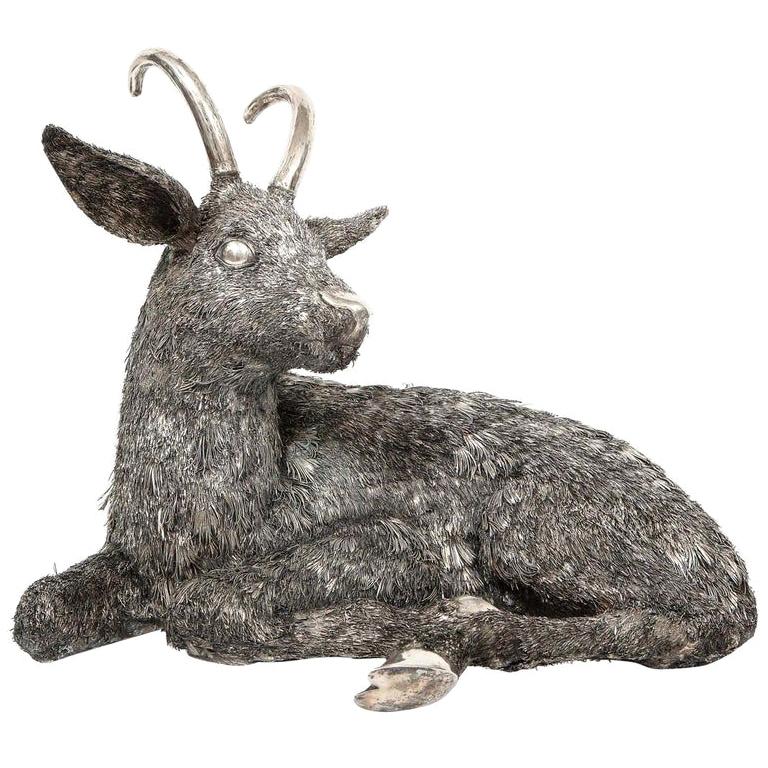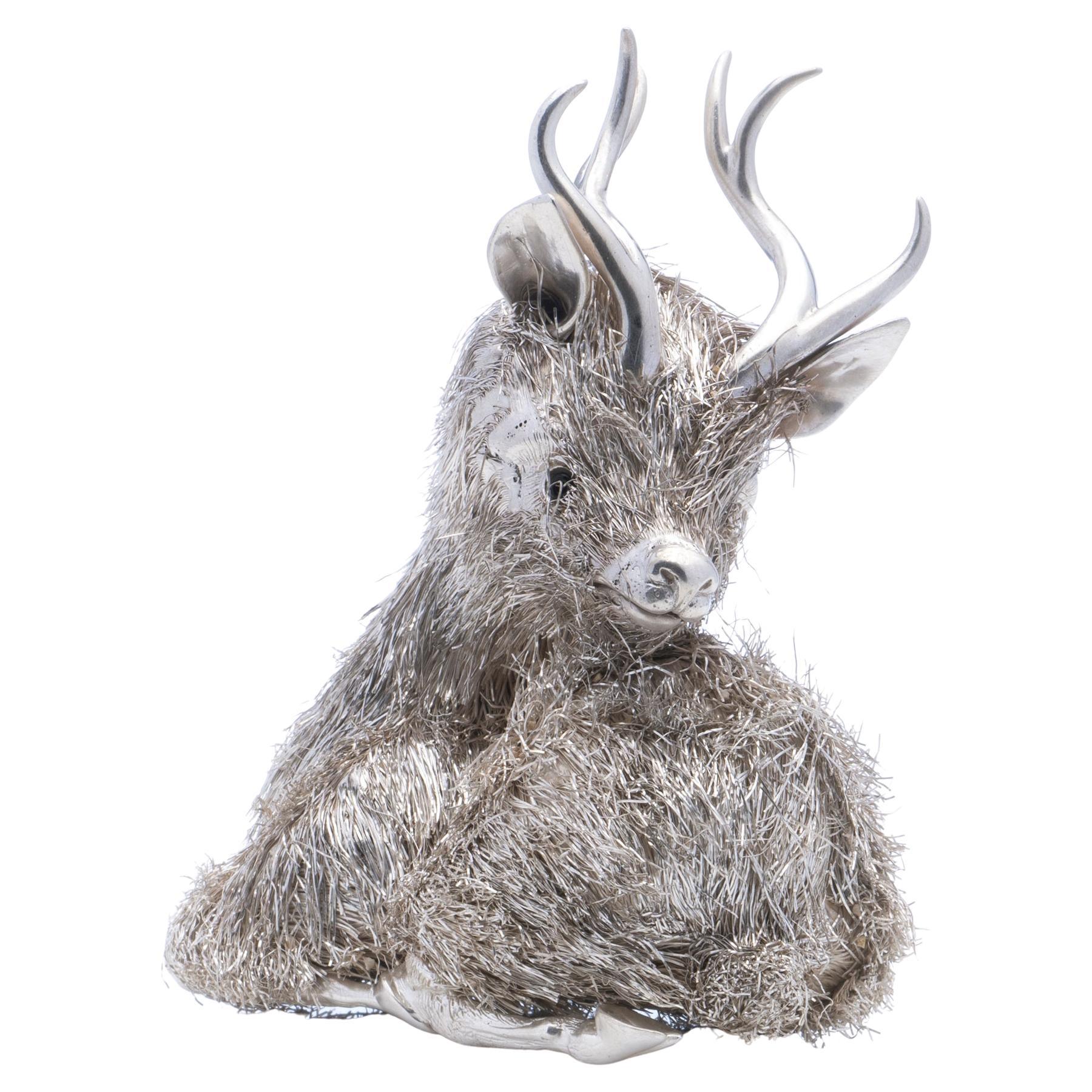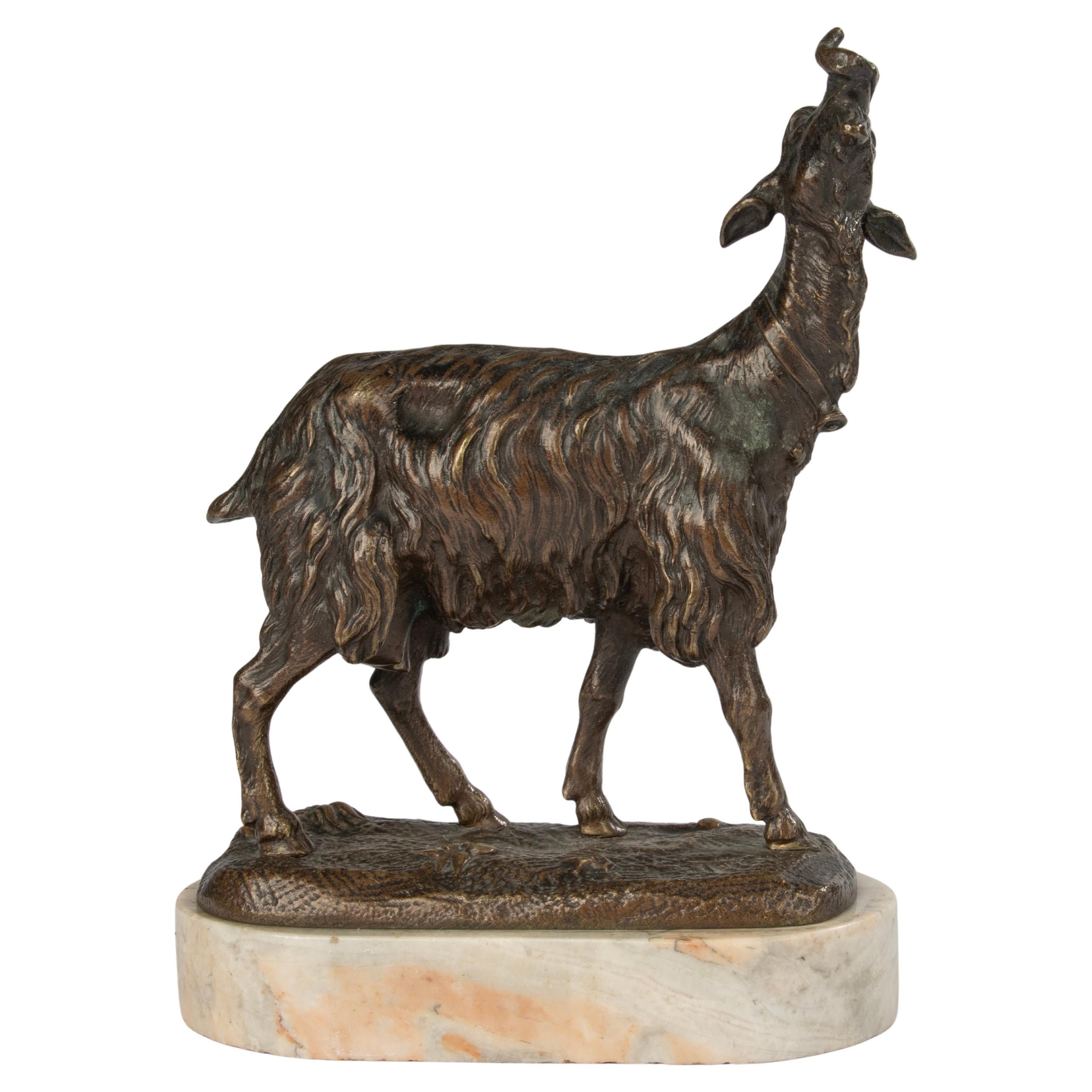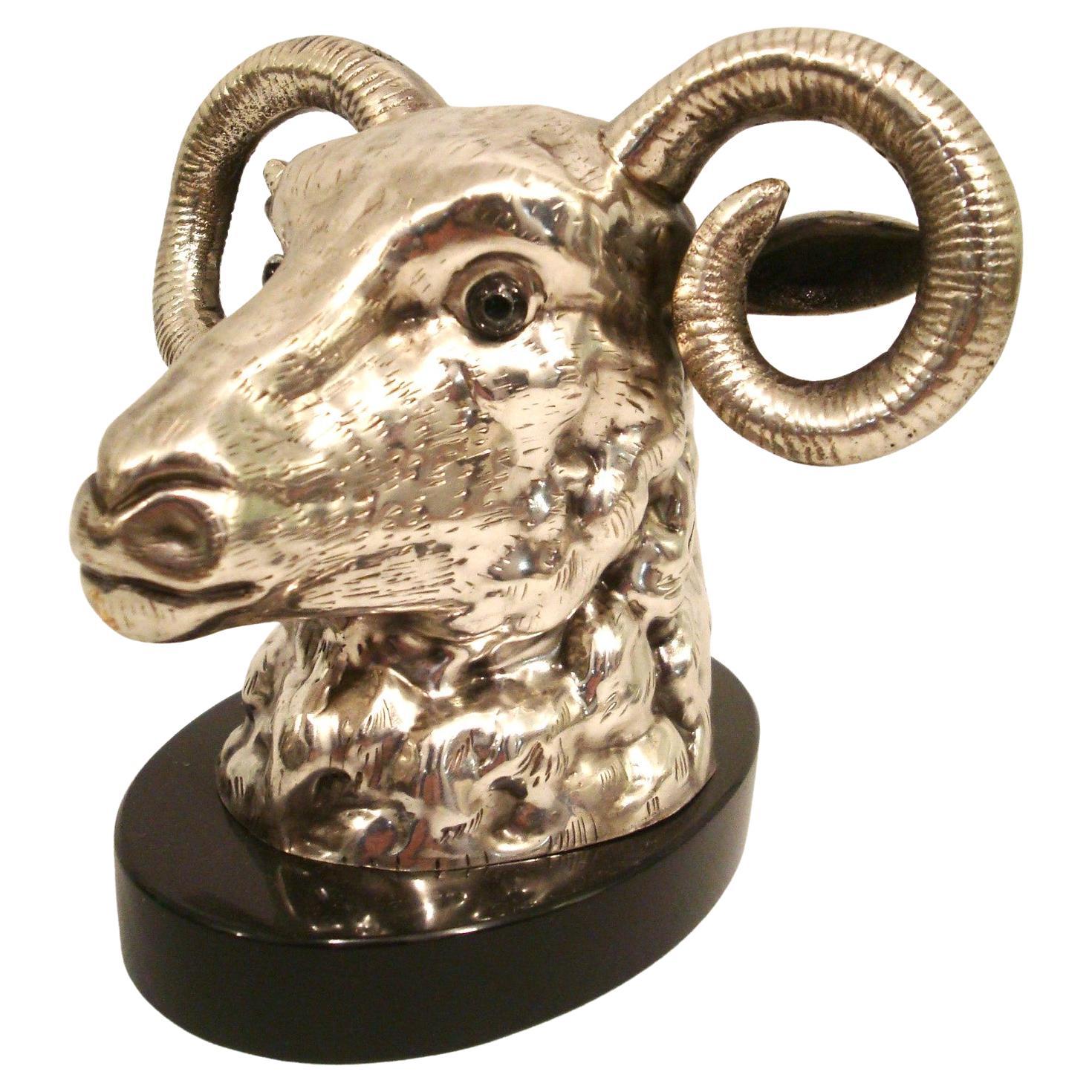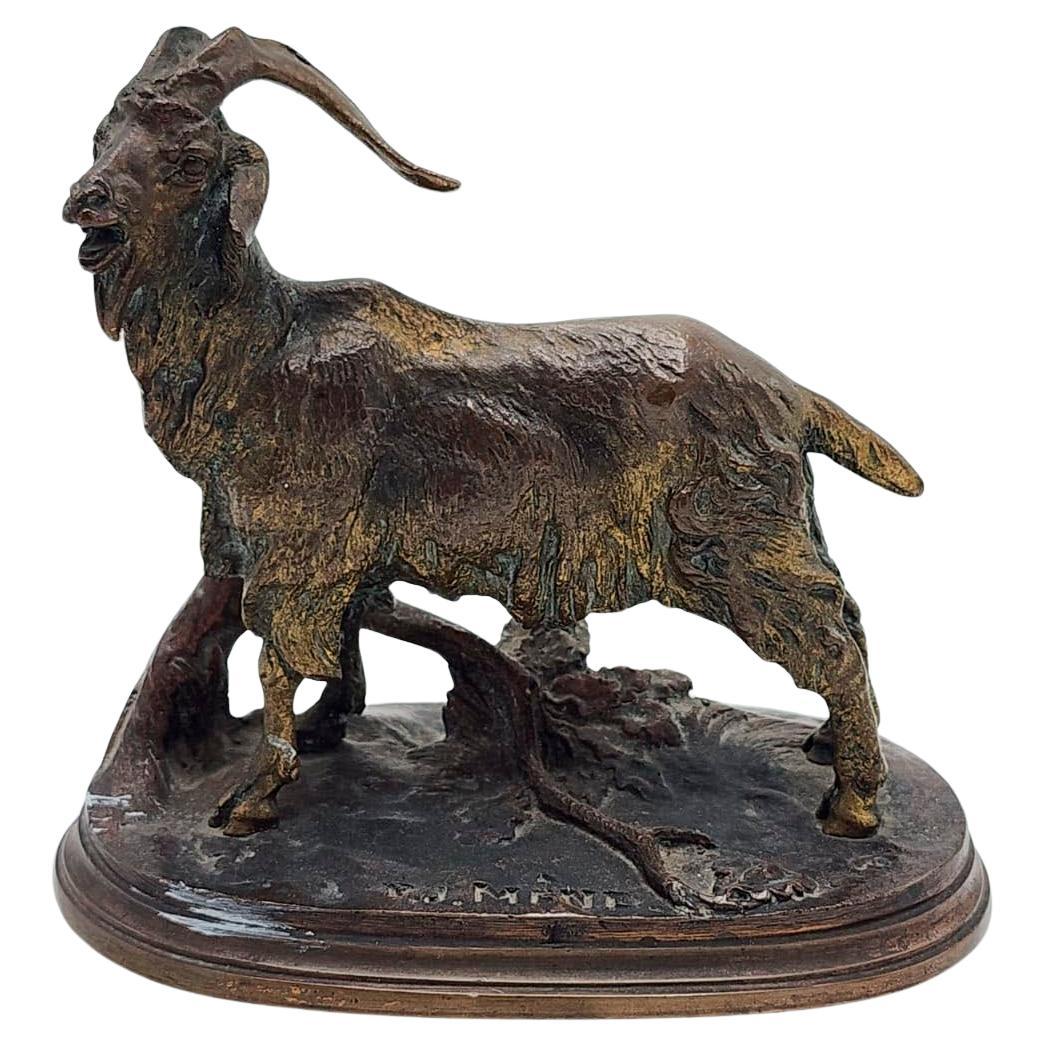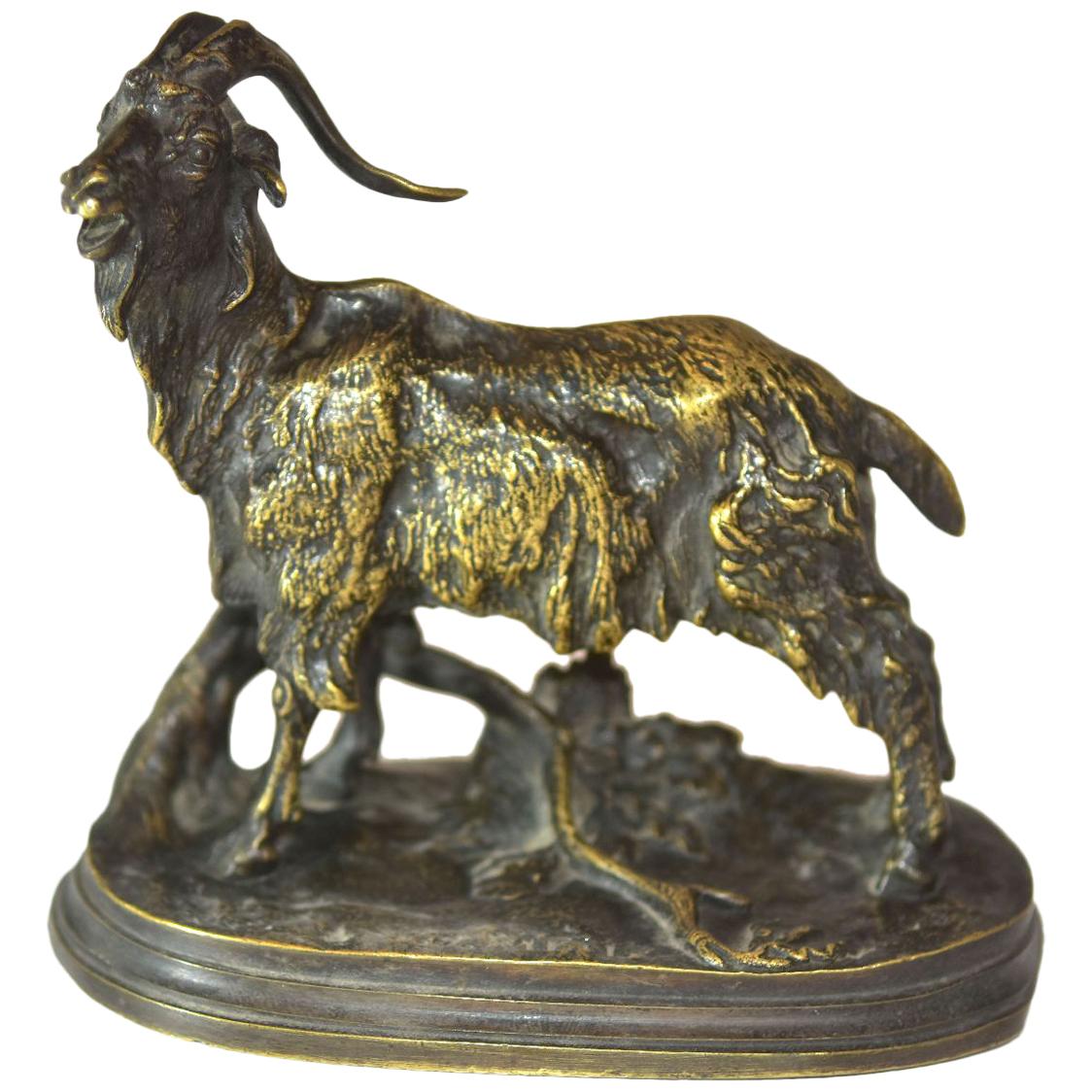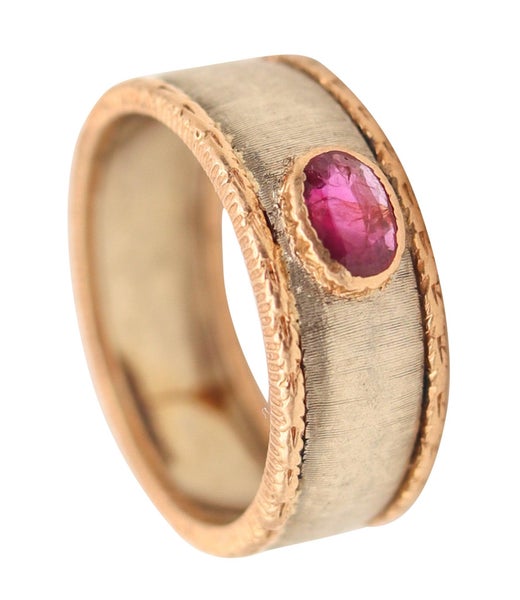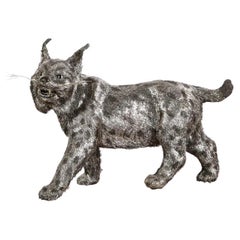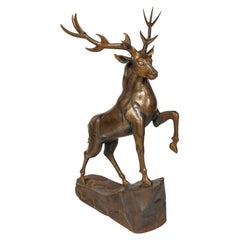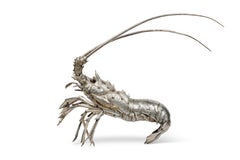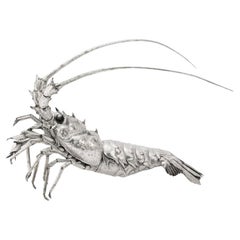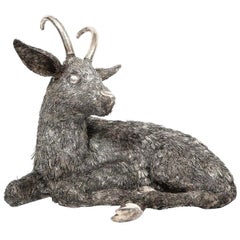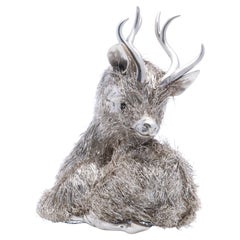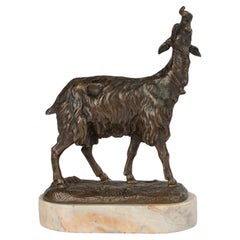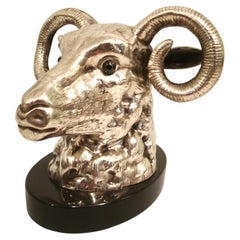Mario Buccellati, a Rare and Exceptional Italian Silver Goat
About the Item
- Creator:Mario Buccellati (Jeweler)
- Dimensions:Height: 12 in (30.48 cm)Width: 14 in (35.56 cm)Depth: 13 in (33.02 cm)
- Materials and Techniques:
- Place of Origin:
- Period:
- Date of Manufacture:circa 1940
- Condition:Wear consistent with age and use.
- Seller Location:Queens, NY
- Reference Number:1stDibs: LU1798234693502
Mario Buccellati
A love of tradition set Mario Buccellati and his fine jewelry house apart in the competitive Italian market and remains a point of pride for the family.
In 1919, Mario launched Buccellati with the opening of his first shop in Milan and quickly built a reputation for his richly embellished traforato, or finely pierced goldwork. The Ancona, Italy–born jeweler’s workmanship was in a class of its own. His rings, earrings, bracelets and other accessories were exquisite, yet the gemstones themselves were never too flashy, elevated instead by the designs’ intricate metalsmithing.
Today the Buccellati family is still closely tied to the business even as it is now owned by Richemont, a luxury conglomerate that also counts Cartier and Van Cleef & Arpels among its subsidiaries.
A young Mario Buccellati apprenticed with famed goldsmith Beltrami e Besnati in the early 1900s, although many of the goldsmithing techniques synonymous with Buccellati go as far back as the Italian Renaissance. The family lineage is also said to include 18th-century jeweler Contardo Buccellati.
Owing to the founder’s advanced metalworking skills, the brand is known for designs that feature metal with the delicacy of lace and draw on the wonders of the natural world. The house’s work is typified by intricate gemstone settings that emphasize their natural color and dense engraving techniques that transform the texture of gold.
One of the time-honored engraving techniques that has come to characterize Buccellati’s work — techniques that require apprenticeships and training in the fine jeweler’s workshops — is called rigato. It involves the engraving of a precious metal with a series of parallel lines to achieve a fabric-like effect.
Rigato is on luminous display in the house’s Macri collection of earrings, cuff bracelets and other accessories. A painstaking attention to detail is pronounced in the celebrated Macri, Bartolomeo and Unica collections — witness the striking honeycomb motif, a house signature, that characterizes the Unica collection’s Caterina bracelet, for example.
The Macri collection was the work of Mario’s son, Gianmaria Buccellati, an award-winning jeweler and internationally renowned silversmith who worked to bring the brand to the global stage by overseeing the opening of boutiques in Tokyo, Paris, California and elsewhere.
In 1951, Mario opened his first store in New York City; today the company operates boutiques worldwide. In 2019, the company celebrated its centennial with a new flagship in Paris and the Vintage collection, which features some of its most enduring designs.
On 1stDibs, find a collection of authentic Mario Buccellati jewelry today.
- ShippingRetrieving quote...Shipping from: Queens, NY
- Return Policy
More From This Seller
View All20th Century Italian Sterling Silver
Silver
20th Century Islamic Animal Sculptures
Steel
20th Century Italian Animal Sculptures
Sterling Silver
20th Century Italian Animal Sculptures
Silver
20th Century Italian Animal Sculptures
Amethyst, Sterling Silver
20th Century French Mounted Objects
Rock Crystal, Jade, Quartz, Gold, Silver
You May Also Like
20th Century Italian Figurines and Sculptures
Silver
Vintage 1950s Italian Sterling Silver
Silver
Antique 1890s French Belle Époque Animal Sculptures
Marble, Bronze
Early 20th Century French Art Deco Animal Sculptures
Marble, Metal
Antique 19th Century French Late Victorian Animal Sculptures
Bronze
Antique 19th Century French Animal Sculptures
Bronze
